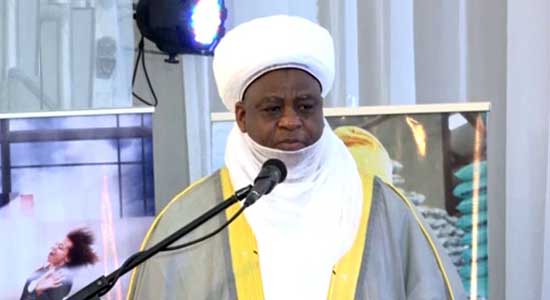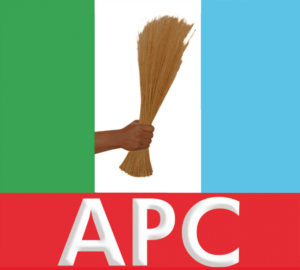Leadership key to quality of governance, says Sultan of Sokoto, as he makes case for national ethical code

*Identified challenges facing leadership in Nigeria, provides solutions
*As Gov Zulum pledges to work with Barewa Old Boys in moving Borno forward
*Thanks Association for choosing Maiduguri for your 2022 public lecture
*Sultan Abubakar thanked for cordial relationship between Sultanate and Kanem Borno Empire
By BASHIR ADEFAKA
In what looks like indication of deeper concerns for a nation that refuses to progress, grow and develop despite huge investments in social economy and security, Sultan of Sokoto and Chancellor, University of Ibadan, Alhaji Muhammad Sa’ad Abubakar, has advocated for an immediate attention to leadership selection and actualisation of national ethical code to which all citizens of Nigeria must abide.

Apparently not comfortable that in the face of virtual limitless resources, lives are still hard for people to live in Africa’s most populous country, he suggested yet another way out of the seemingly intractable problem roots, which is to re-evaluate the quality of leaders, charged with the business of galvanizing the natural resources for the nation to move forward.
Speaking as guest lecturer as guest lecturer at the 2022 edition of Barewa Old Boys Association (BOBA) Annual Meeting, held in Maiduguri, Borno State, Nigeria’s North East, on Saturday November 26, 2022, Sultan Sa’ad Abubakar put the onus of ensuring a better country on ability of the leaders that are gathered in a democracy to manage the affairs of the country, especially as the nation goes into a new transition in less than 90 days from now.
The co-President, World Religions for Peace, the Sultan, who is also the Acting Chairman of the BOBA’s Board of Trustees (BoT), stood in for the substantive Chairman and Former Head of State, General Yakubu Gowon, at the event.
In the lecture titled, “THE CHALLENGES OF LEADERSHIP AND GOVERNANCE IN NIGERIA: LOOKING INWARDS AND FALLING BACK ON INDIGENOUS RESOURCES”, the retired Army General-turned monarch spoke eloquently about how Nigeria can now use leadership as tool for change, although attitude of some unpatriotic citizens have been blamed at several quarters for why economic principles and government policies that work for other countries have failed to positively impact growth and development in own country.
The custodian of the Usmaniyyah Throne and Amirul Mu’mineen of Nigeria, Alhaji Sa’ad Abubakar, opened his lecture on a more practical ground that adequately identifies leadership as pivotal in such a situation and he readily too picked his evidence from the Islamic traditions to show why not on followership but leadership rests the responsibility of making a better society.
“Throughout Human history, leadership has always held the key to the quality of governance and therefore the quality of life in human societies. Leaders capture the vision of their societies and assemble the human and material resources to realize these visions. When problems arise, as they would in life, leaders assemble the wisdom and the resolve necessary to address these problems.
“This is why in Islam leaders are likened to Shepherds and their citizens to the flock and their assignment is to ensure the safety and welfare of their flock. It is their commitment to the welfare of the people that endears leaders to citizens and earn the trust which gives leaders the moral capital to achieve a lot in shaping the future of their societies,” he said.
Although educational qualification or knowledge capacity matters among prerequisites for choosing a leader that leads others, the Sheikh Usman Dan Fodiyo’s descendant on the throne admitted but argued that he to lead does not necessarily have to be the most educated, adding that such person must possess the ability to utilise the knowledge available to him achieve required peace, security and uplift the welfare status of his people.
Ability to achieve these, he said, is the basic component of good governance, which he said is the major tool by which society is kept at peace while development and prosperity flourishes.
“Leaders are not necessary the most learned in their communities, but they usually have the ability to use the knowledge available to achieve the peace and security as well as the development and prosperity of their society.
“Good governance, which represents prudence, probity, transparency, justice and equity, is the major tool by which society is kept at peace while development and prosperity flourishes. Peace and security is the foundation on which development and prosperity stands.
“Peace requires justice and equity as well as inclusion and respect for the other members of a plural society. It is therefore important to emphasize good governance in any discussion on leadership.
“The ability of leaders to ensure good governance is what defines their leadership. This requires not only knowledge but, even more importantly, character. That ability to restrain one’s desires and one’s greed and to prioritize the citizens welfare and therefore become sensitive and responsive to the needs of the people is the crux of leadership. This is exactly why leadership holds the key to the quality of society.
“It has been universally accepted that governments exists to ensure justice and equity and the welfare of people. As Ibn Khaldun would put it, “Government is an institution which prevents injustice other than such as it commits itself.””
In his scholarly view, he said, dissected the Ibn Khaldun’s submission.
“I think Ibn Khaldun, with his vastness of knowledge and wealth of experience in statecraft, is admitting the fallibility of government and in so doing suggesting that while no government is perfect, leaders must endeavor to keep institutions on their toes so that they achieve that purpose of government – justice, peace and development.”
Having said it all, the Sultan, by his lecture, then brought the discussion down to the level at which he diagnosed the issue with Nigeria and came up with a test result and made his recommendation.
“The problem today in Nigeria is that this good governance is becoming increasingly elusive as a result of which despair and frustration are gradually setting in and building up to levels that threaten the stability of our society. It is in this spirit of our responsibility as leaders that I wish to draw our attention to these increasing trends and the need to take some extraordinary measures to address them before they overwhelm us completely,” he said.
“I am particularly worried about the trend towards excessive materialism that has now engulfed our politics, particularly the leadership selection processes. Our problems may be many but their roots are few and fairly well known.
“Today this reality is echoed daily in our palaces which have been the first and sometimes the only point of call of ordinary citizens. Our development partners and our National Bureau of Statistics keep producing figures that are worrying.
“It is important we tarry a little to visit and reflect on these danger signs before they sprang any more surprises like they have done recently and in the history of many societies,” he said.
The multifaceted leader emphasised that the challenges facing leadership and governance today in Nigeria are many and vary, stressing that ”we can only consider the most urgent and the most consequential. Today the major challenges of leadership appear to be five in number, namely, peace and security, accountability, trust deficit, people’s welfare and core values.”
Governor Zulum
In his remarks, Governor f Borno State, Prof. Babagana Umara Zulum, promised to continue to liaise and partner with the Barewa Old Boys, of which the Sultan is eminently a member, to improve the education sector while appreciating the association for their visit and holding of the annual public event in Maiduguri.
Zulum pledged to consult the association on how to improve the education sector of Borno State and other sectors to boost the society’s economic and political activities of the state with the emerging peace in Borno.
The National President of the Barewa Old Boys Association (BOBA), Engr Dahiru Ibrahim, acknowledged the hospitality and comfort accorded to National Executive Committee (NEC), Local Organising Committee (LOC) and other members by the Governor, who was the Chief Host.
He appreciated the state government, organisers of the event and the people of Borno State for their support and cooperation.
The Shehu of Borno, Alhaji Abubakar Umar Ibn Garbai El-Kanemi, thanked the association for choosing to hold their 2022 annual public lecture and dinner in Borno.
The Shehu of Borno appreciated the Sultan of Sokoto, Alhaji Muhammad Sa’ad Abubakar, for the peaceful and cordial relationship that exist between the Sultanate and the Kanem Borno Empire since over a century ago.









